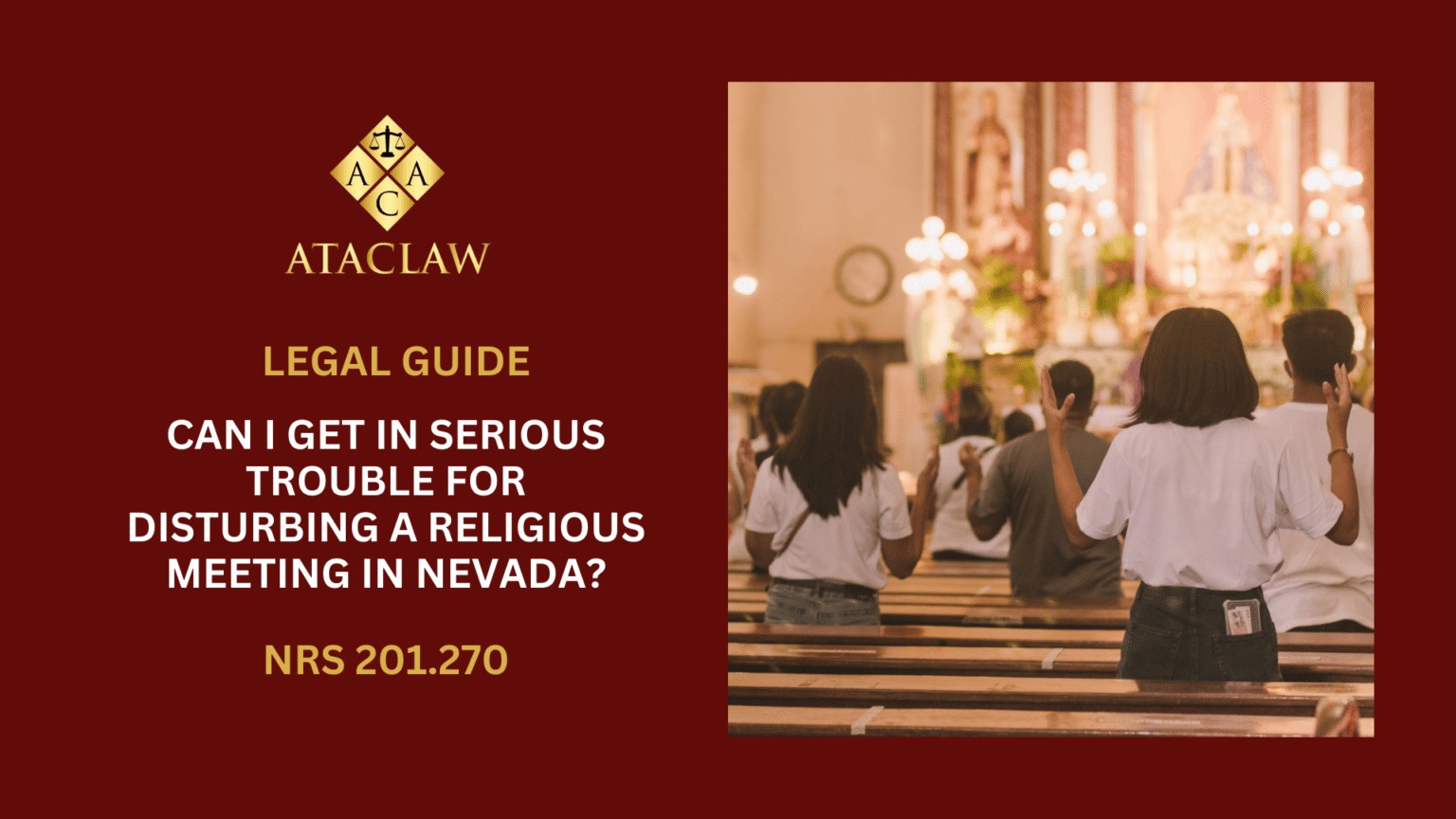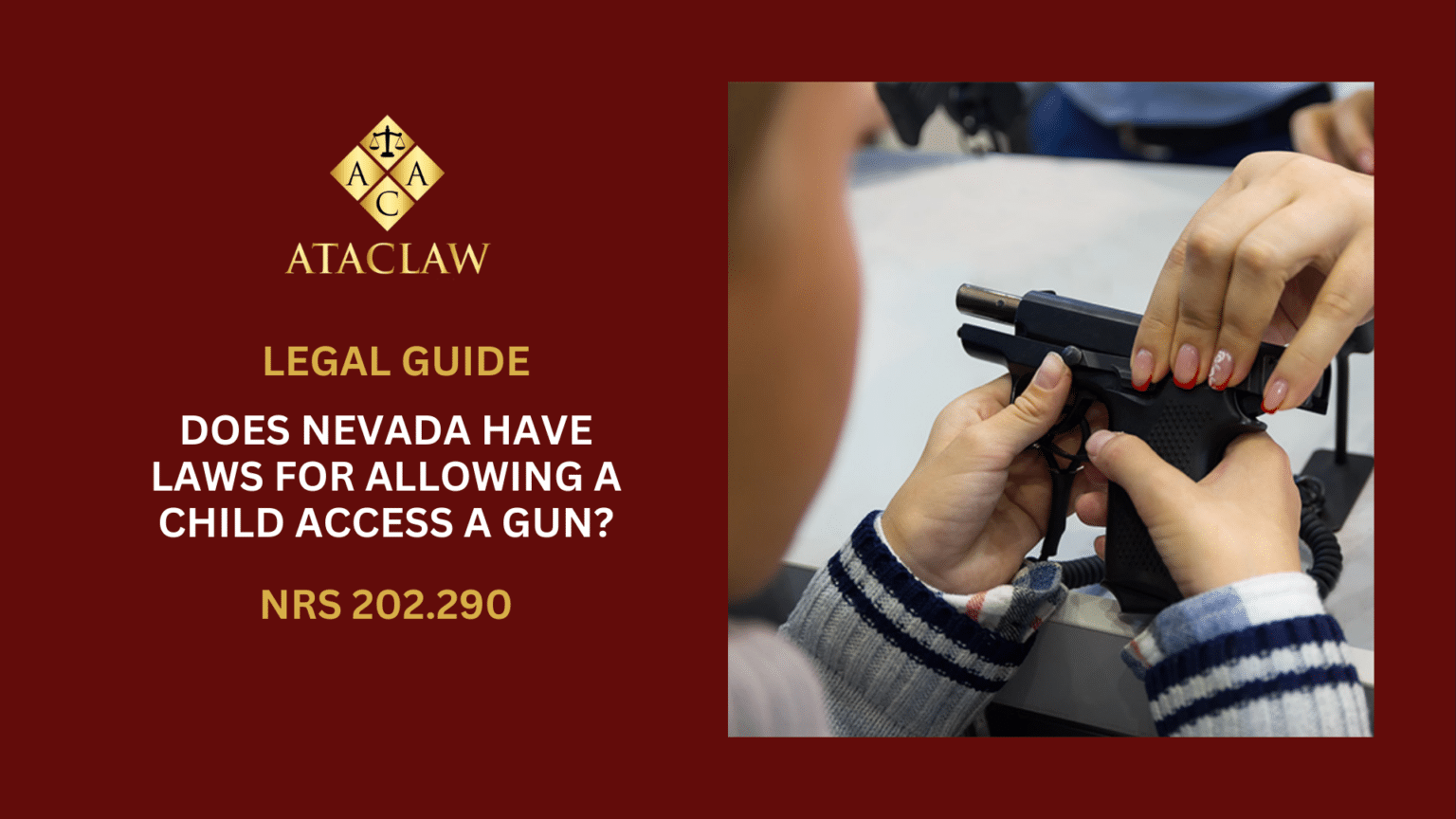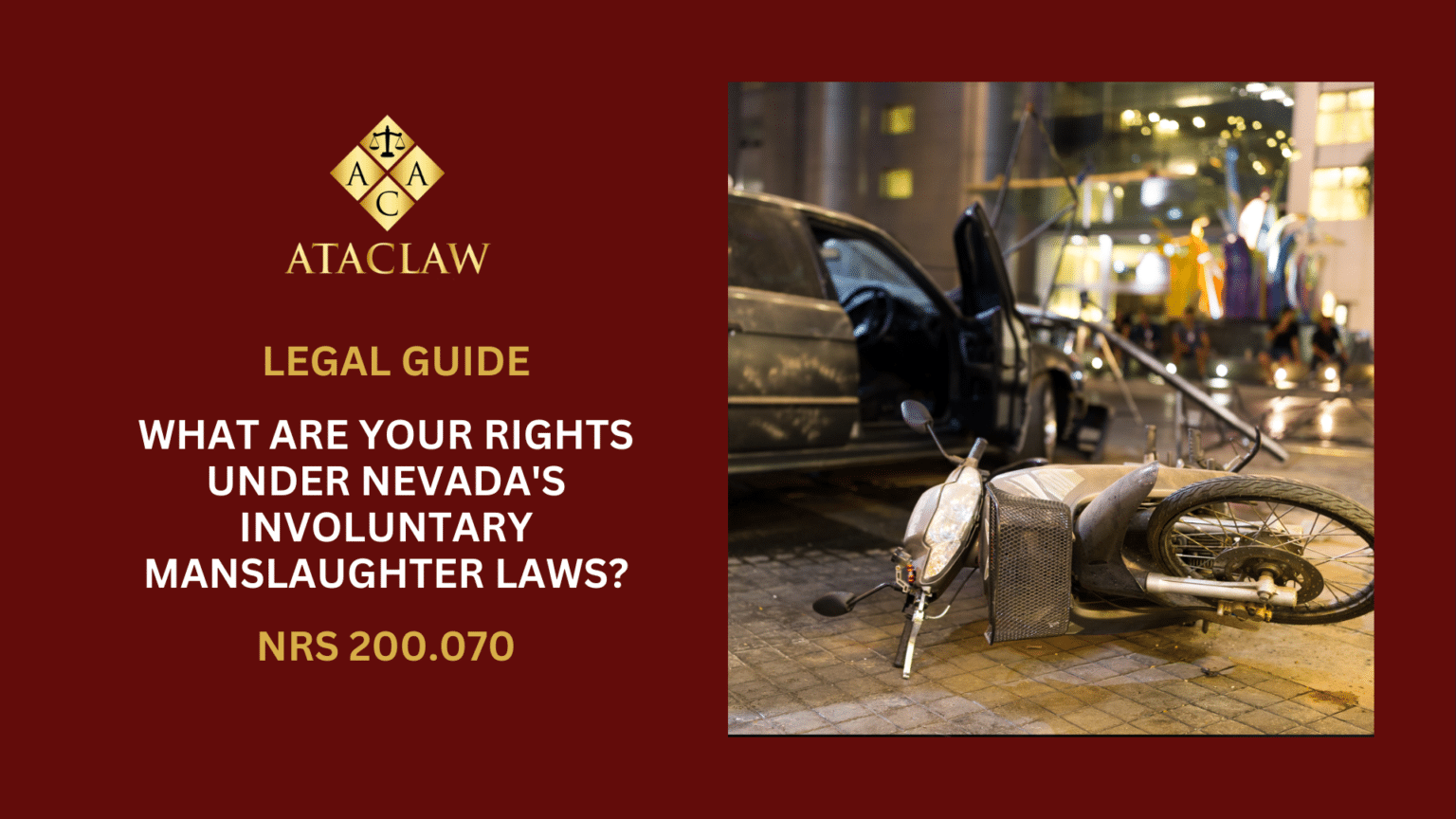In a state as culturally diverse as ours, respecting different religious practices is not just a social norm but also a legal requirement under NRS 201.270. In Nevada, it’s a misdemeanor offense to willfully disturb a religious meeting, as per NRS 201.270. The statute is comprehensive and applies to any gathering meant for spiritual worship, irrespective of its location — from traditional houses of worship to any public or private space where individuals come together for religious purposes.
Can Disrupting a Religious Service Lead to Legal Consequences in Nevada?
In Nevada, it’s deemed a misdemeanor to interfere with a religious assembly through specific disruptive actions. This law ensures that all gatherings for worship are respected and protected, promoting a sense of peace and order during these congregations.
Disturbances include a wide range of behaviors that detract from the solemnity of religious gatherings:
- Engaging in loud, inappropriate, or offensive actions
- Speaking profanely close enough to disrupt the serenity of the service
- Presenting entertainments, animal races, gambling activities, or any disruptive spectacles
- Obstructing access or causing harm to property of attendees within a mile radius of the service
- Intimidating, threatening, or physically confronting anyone present
This legislation emphasizes the importance of non-interruption to religious practices, irrespective of the location—may it be traditional worship centers like churches, mosques, and synagogues, or any designated public or private spaces for worship.
Potential Legal Charges
Violating this statute not only attracts consequences specific to this misdemeanor but may also result in additional charges depending on the disruption’s severity. These can include:
- Breach of peace
- Reckless endangerment
- Trespassing
- Harassment
- Vandalism or malicious mischief
Each of these offenses carries its own set of penalties, potentially adding to the legal repercussions faced by the offender.
What Are the Consequences of Disrupting Religious Gatherings in Nevada?
In Nevada, interrupting or causing disturbances during religious services is classified as a misdemeanor. Such offenses could lead to consequences, including incarceration for up to six months and fines that may reach up to $1,000.
Typically, for individuals facing their first charge related to disrupting a religious meeting, the likelihood of being sentenced to jail time is minimal. Furthermore, there’s potential for the case to be dismissed entirely provided that the defendant meets certain conditions. These conditions may include paying a fine, completing a specified number of hours in community service, and attending an Impulse Control Counseling session.
Is It Legal to Prevent Someone from Entering a Church?
Yes, it is indeed permissible to prohibit entry to someone at a church or any other place of worship. While these locations are often viewed as open to the public, they remain private properties. This classification allows them to set and enforce their own access rules, much like any other private entity. Consequently, leadership or designated individuals within the religious organization have the authority to determine entry policies and can legally restrict access to certain individuals if deemed necessary.
How Can You Defend Yourself Against Charges of Disturbing a Religious Meeting in Nevada?
If you’re facing charges for disrupting a religious service in Nevada, there are several defense strategies that can be employed to challenge the accusations effectively:
1. First Amendment Rights
Sometimes, actions deemed disruptive may fall under protections guaranteed by the First Amendment, which covers freedom of speech and expression. The Nevada Supreme Court recognizes these rights, although this defense can be complex as it balances constitutional freedoms with the rights of religious congregations to conduct services without interruption.
2. Misclassification of the Meeting
It’s possible that the event in question was not religious in nature. If the meeting was actually of a civic or another secular nature, the specific charge of disturbing a religious meeting may be invalid. However, individuals might still face general disorderly conduct charges if their behavior was disruptive during any type of meeting.
3. False Allegations
Accusations of disturbing a religious gathering can sometimes stem from misunderstandings, misconceptions, or personal conflicts such as jealousy or anger. Presenting clear evidence like eyewitness accounts or video recordings that contradict the allegations can lead to the dismissal of charges. This evidence helps demonstrate that the defendant’s behavior was appropriate within the context of the event.
4. Lack of Intent
In Nevada, a conviction for disrupting a religious meeting requires proof of willful intent. This means the prosecution must demonstrate beyond a reasonable doubt that the defendant deliberately engaged in disruptive behavior. If it can be shown that there was no intention to disturb the meeting, the charges typically cannot stand.
Can Charges for Disturbing a Religious Meeting in Nevada be Sealed?
Yes, in Nevada, it’s possible to seal a conviction for disrupting a religious meeting one year after the case concludes. If the charge is dismissed, the individual can seek to seal their record right away.
Anyone found in violation of these laws could face serious penalties, indicating the state’s commitment to ensuring that worshippers can engage in their religious practices undisturbed. Understanding and respecting these laws is crucial, not just for avoiding legal trouble, but for maintaining harmony and respect within our diverse communities.
If you’re faced with accusations or charges related to disrupting a religious service, seeking knowledgeable legal guidance is a prudent step to navigate through your legal obligations and rights.
For further legal assistance and to discuss your case with an expert, don’t hesitate to contact ATAC LAW.




